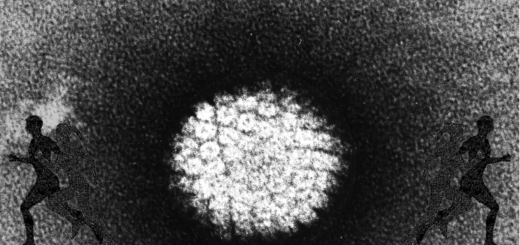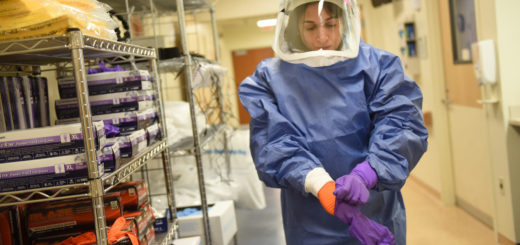Lived experience of mental health: Benefit or hindrance?

Lived experience of poor mental health matters for representation, so why do some think otherwise? Michelle Jamieson explains…
Lived experience matters.
Really if this was universally believed, this article would not need to expand on that statement. This is sadly not true. The well-known phrase “nothing about us without us” originated in the disability rights community, as well as James Charlton’s 1998 book1, whose work rightly argued that people living with physical disabilities have been treated unfairly, stereotyped, and subsequently marginalised.
In recent years, the phrase has also come to mean something more for people living with poor mental health. It neatly embodies the radical belief that people with lived experience of poor mental health must be and are more than ‘worthy’ to be involved in every domain of mental health service improvement, including service delivery and implementation, training, governance, research and importantly, for representation.
This kind of meaningful involvement is considered ethically imperative to help prevent patronising and exclusionary practices, policies, and actions. However, in a catch-22, it can also result in exploitation of the considerable expertise held by those with lived experience of poor mental health. Often called “experts by experience”, those with lived experience of poor mental health have had to navigate complex, patriarchal, and harmful health and welfare systems that often co-opt the experience of ‘recovery’2. As a result of this, many of us have developed ad hoc self-care strategies and dealt with regular stigma and discrimination still prevalent in society3.
As such, it is more than evident that mental health research in particular would hugely benefit from the inclusion of people with lived experience of poor mental health. Such inclusion is still looked down upon in several areas, such as in psychiatry and some academic circles, because these people believe the research will be biased if people with lived experience are involved in studying what they live with. So how can this be improved?
Mental health service delivery
People with lived experience of poor mental health can use their expertise to help guide, inform and instruct others going through the same thing in the form of positive peer support. This can take place informally within dedicated centres such as hospitals4 and within the community5.

Peer support can also occur formally through paid roles, such as peer support workers who are often linked to official mental health services6. Previous research has indicated that, alongside being cost-effective to health systems, both formal and informal peer support can help others find ways to live positively with their mental health experiences7.
Perhaps unsurprisingly, peer support in any form remains the exception rather than the norm and is an under-resourced form of lived experience support. In line with the “nothing about us without us” maxim, peer support should be considered essential.
Workforce training in mental health
The mental health workforce – which includes psychiatrists, psychologists, and social workers – undergo extensive education and continue to learn throughout their careers. However, this is almost entirely delivered by clinically based instructors. To embody the mantra of “nothing about us without us”, truly effective workforce training means that people with lived experience of poor mental health must be a cornerstone in the delivery of training to mental health professionals; but again, this is rarely enacted.

However, some in the mental health field are realising that bringing in experts by experience can enrich training and are making a real, meaningful effort to integrate this. For example, I regularly give guest talks as an expert by experience on living with psychosis to several courses in Glasgow, including those enrolled in the Psychological Studies Masters and mental health short course options at the University of Glasgow and the Counselling Psychology doctorate at Glasgow Caledonian University8.
Mental health governance
Hospitals, mental health commissions, training groups and the like are often led by homogeneous and exclusive leadership teams. Interestingly, more and more organisations are beginning to recognise the importance of having experts by experience occupy executive roles within leadership teams of mental health institutions. For example, the doctorate programmes in clinical psychology at the University of Glasgow and the University of Edinburgh utilise ‘service-users’ and expert by experience groups to inform their recruitment, interviews and training9.
Mental health research
And we come to the crux of the issue; why lived experience in mental health research is a benefit rather than a hindrance. Without lived experience in research, none of the aforementioned benefits would be gained. By the same token, mental health research has also been criticised by some, especially within the disability rights area, for using participants as passive ‘guinea pigs’ rather than active volunteers. This has led to the emergence of participatory action research methods – an inclusive method which views participants as individuals that are able to co-produce the research from beginning to end.
Experts by experience can be particularly helpful in conceptual development and crafting participant recruitment measures, as well as meaningful data collection and analysis. This is due to the fact that they themselves have experienced these situations at some point with regard to stigma and ‘recovery’ projects. Most importantly, appropriate support and reimbursement must be offered to experts by experience for their work. The psychosocial barriers they face should not be underestimated, nor should their contribution to any project be overestimated. Inclusion as colleagues in the academic circles is imperative and they are deserving of no less. Unfortunately, this has not always been the case10.
Although change is happening, much work remains to fully embody “nothing about us without us”. There has always been a consensus that implementing this is essential for providing a just, inclusive and ethically meaningful mental health system for all11.
We must continue the fight for this to be realised.
This article was specialist edited by Stephanie Allan and copy-edited by Mais Al-Attili
References
- Check it out here.
- Read the amazing paper here.
- See a community example here.
- Read about positive peer support in hospitals here.
- More information about positive peer support in the community can be found here.
- You can read about peer support workers here.
- See here.
- Learn more about these talks here.
- Learn more about that here.
- Read about that here,
- Learn more about that here.











1 Response
[…] This article on the website of theGIST (the Glasgow Insight into Science & Technology) has been written by Michelle Jamieson. It begins: […]